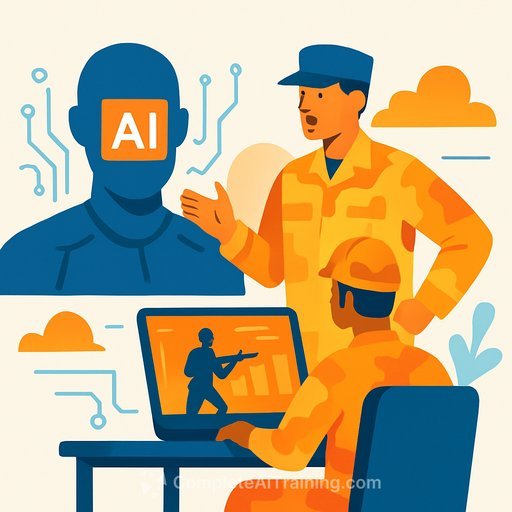U.S. Space Force Advances AI Integration for Operational Efficiency
The U.S. Space Force is stepping up its efforts to integrate artificial intelligence (AI) into everyday operations. With AI and data capabilities becoming key priorities at the Department of Defense, the Space Force is focusing on equipping its members—known as guardians—with AI tools that enhance their mission effectiveness.
Chandra Donelson, the service’s chief data and AI officer, emphasizes two main goals: speeding up AI adoption and ensuring that operational personnel have direct access to these capabilities. This approach is critical for a force that depends heavily on data to maintain space superiority.
Strategic Roadmap for AI and Data
In March, the Space Force released its Data and Artificial Intelligence FY 2025 Strategic Action Plan. The plan outlines the path toward becoming a data-driven and AI-enabled force. Donelson highlighted that the strategy will be updated annually to stay aligned with operational needs and encouraged industry partners to contribute ideas and solutions.
One of the service’s key initiatives is the “AI Challenges” series—hackathon-style contests where guardians prototype AI solutions for real operational and acquisition problems. The first generative AI challenge last year attracted over 350 participants, with the top teams presenting at the Spacepower Conference. This year’s challenge, which began registration in June, has already drawn more than 200 entrants. Participation is open to all military branches and government agencies, but each team must be led by a guardian.
Coordinated AI Efforts Across Commands
Each of the Space Force’s field commands—Space Training and Readiness Command, Space Operations Command, and Space Systems Command—has set up boards to coordinate data and AI projects. The goal is to synchronize initiatives and ensure guardians see clear operational benefits from AI applications.
The Pentagon’s ‘AI First’ Direction
The Space Force’s AI push reflects a broader Department of Defense strategy to embed AI into all military operations. Emil Michael, undersecretary of defense for research and engineering, stated that the DoD aims to be an “AI first” enterprise. This means every new project or process will be evaluated for AI integration, focusing on how AI can improve or transform operations.
In support of this, the Pentagon’s Chief Digital and Artificial Intelligence Office (CDAO) recently awarded contracts worth up to $200 million each to leading AI companies like Anthropic, Google, OpenAI, and xAI. The contracts aim to bring commercial AI technologies into national security applications such as logistics, simulation, and war gaming.
Addressing Urgent AI Applications in Space Operations
AI’s role is especially critical in space operations where tracking satellites, identifying interference or spoofing, and analyzing intelligence data demand advanced tools. Donelson stressed the importance of making AI tools operationally relevant and accessible to guardians on the front lines.
Gillian Bussey, deputy chief science officer for the Space Force, pointed out that many satellite ground systems still rely on outdated technology from 20 to 30 years ago. Automating these legacy systems can free operators to focus on higher-priority tasks, improving efficiency and response times.
Overcoming Information Overload
One major challenge is managing the flood of data in modern battle spaces. Bussey noted that information overload can hinder decision-making. The goal is to deliver the right information in a format that warfighters can quickly act upon.
Michael summed up the issue by highlighting the vast amounts of underused data the Pentagon has collected. The key question is how to interpret and leverage this data effectively to gain a tactical advantage.
Further Learning
For operations professionals interested in understanding AI applications in defense and beyond, exploring focused AI training can be valuable. Resources like Complete AI Training offer courses that cover AI tools, automation, and practical applications relevant to operational roles.
Your membership also unlocks:





